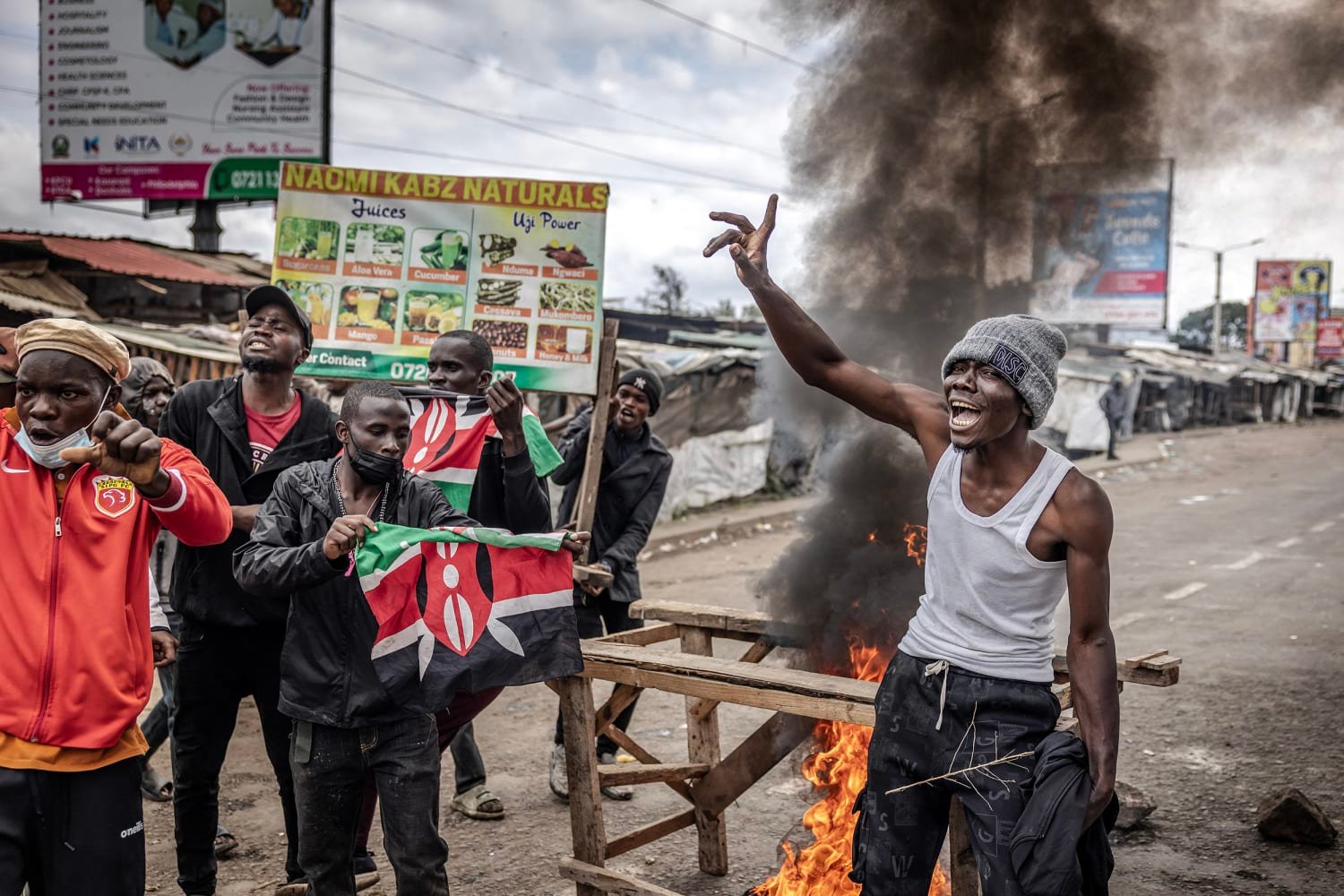Kenya’s President William Ruto has come under both praise and criticism after publicly instructing police to shoot looters and rioters in the legs, rather than use deadly force.
The directive follows days of chaos sparked by youth-led demonstrations and widespread public outrage over the country’s economic strain and allegations of police brutality.
Speaking during an address to security officials and the public, Ruto stated:
“We want peace in Kenya. We want business to continue. So, anyone who picks fire and burns someone’s shop, they should be shot in the legs — not killed. Let them be taken to hospital, then to court. But that kind of destruction, we will not tolerate.”
The President emphasized that law enforcement must avoid killing citizens but take firm action against individuals committing acts of arson or looting during protests.
Ruto’s statement comes in the wake of the deadly Saba Saba protests held on July 7, which commemorated Kenya’s historic 1990 pro-democracy movement. The 2025 protests quickly turned violent, with crowds taking to the streets across cities like Nairobi, Kisumu, and Mombasa to protest high living costs, corruption, and state violence.
According to Amnesty Kenya, at least 11 people were killed, and dozens injured. The trigger for the unrest traces back to the suspicious death of blogger and activist Albert Ojwang while in police custody in late June — a case that has come to symbolize broader frustration with police brutality and lack of accountability.
The President’s choice of words — to “break their legs” with bullets — has drawn criticism from human rights groups who fear it may open the door to unregulated use of force by security officers. However, Ruto clarified that he is against extrajudicial killings and that his instructions are to disable, not eliminate, those who engage in violent crime under the guise of protest.
His remarks contrast sharply with earlier government language which many saw as endorsing a “shoot-on-sight” approach. This latest shift appears to aim for a middle ground — where officers apply necessary force without resorting to executions.
On social media, the President’s message has drawn mixed reactions. Supporters argue that destruction of private property should be met with strict consequences, especially after videos surfaced showing businesses being looted and burned.
Also Read; Tanzania Embarks on Nuclear Energy Future
But critics warn that shooting to injure is a dangerous precedent and violates international standards on use of force.
Legal experts have also questioned the practicality of officers shooting to wound, noting the difficulty of executing such precision in fast-moving protest environments.
Kenya’s business community continues to report major losses due to the protests. The Kenya Private Sector Alliance (KEPSA) estimates that the country loses nearly one-third of daily GDP during nationwide unrest days. Markets in key urban centres have been severely affected, with some shop owners fearing permanent closure due to looting and fires.
Opposition leaders, including Raila Odinga, have condemned both the looting and police violence, calling for urgent dialogue to address the grievances of Kenya’s youth.
The economic hardship — driven by rising fuel prices, new taxes under the Finance Bill, and high youth unemployment — continues to fuel tension across the country.
The Independent Policing Oversight Authority (IPOA) has launched investigations into deaths and injuries from the recent protests. Ruto, for his part, has pledged that law enforcement will uphold the rule of law — and will no longer fire live bullets to kill demonstrators unless absolutely necessary.
Calls for a national dialogue forum are growing louder, with religious groups, civil society organizations, and student unions urging government accountability and reforms.







